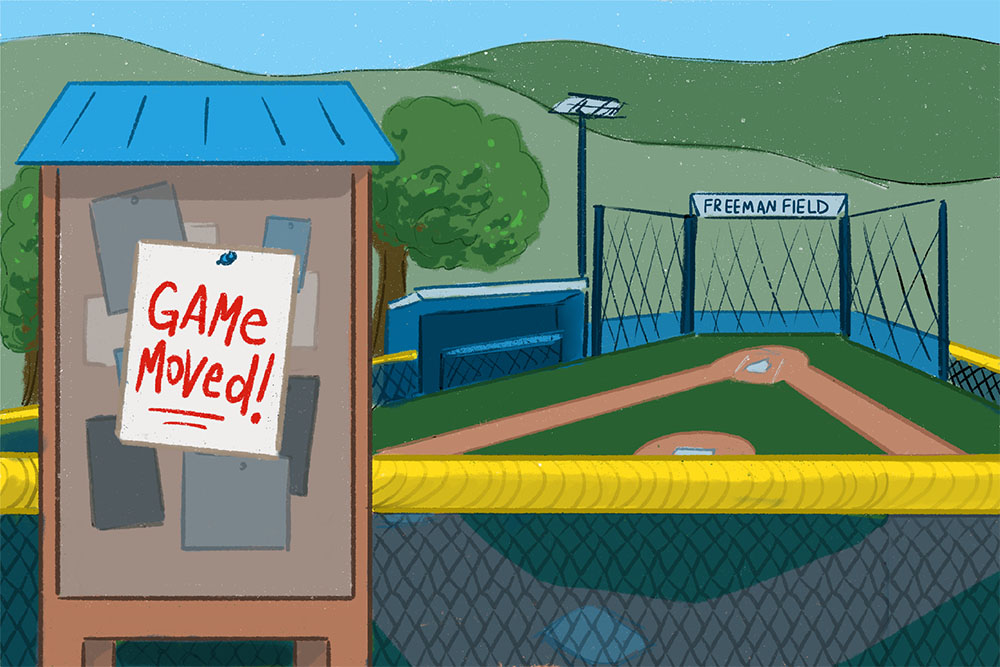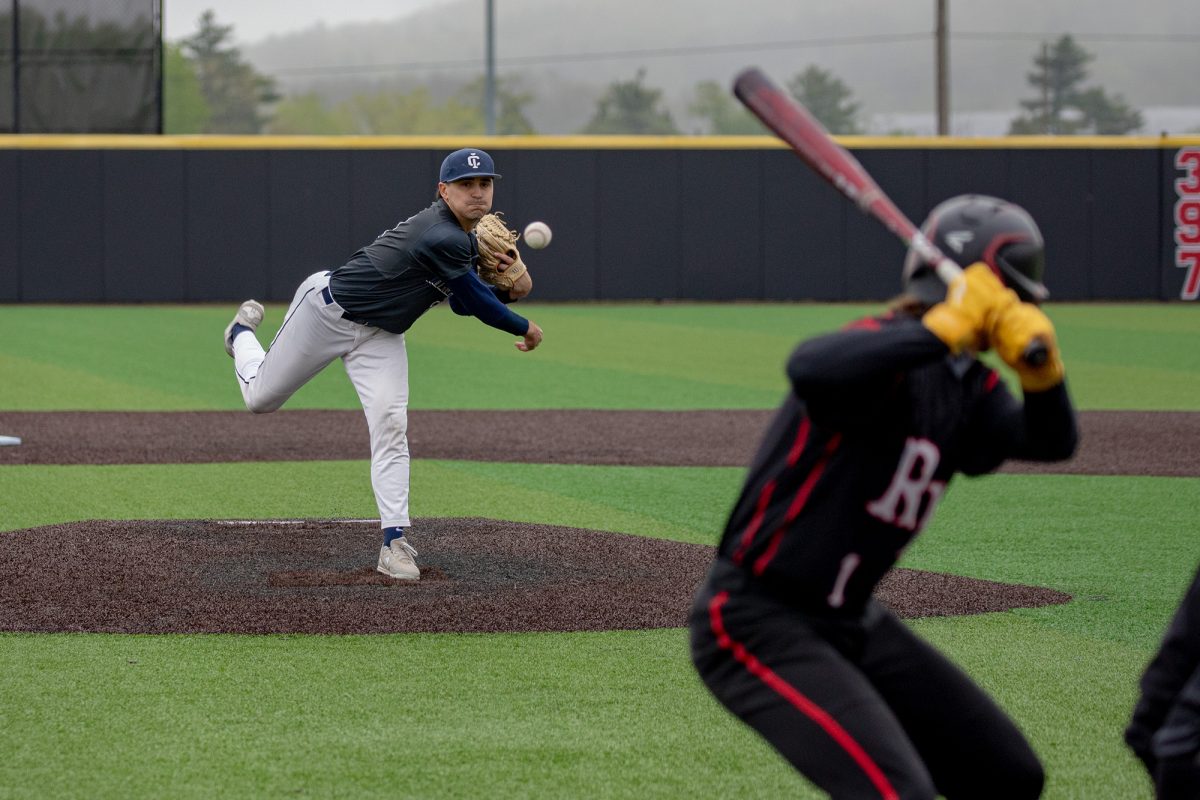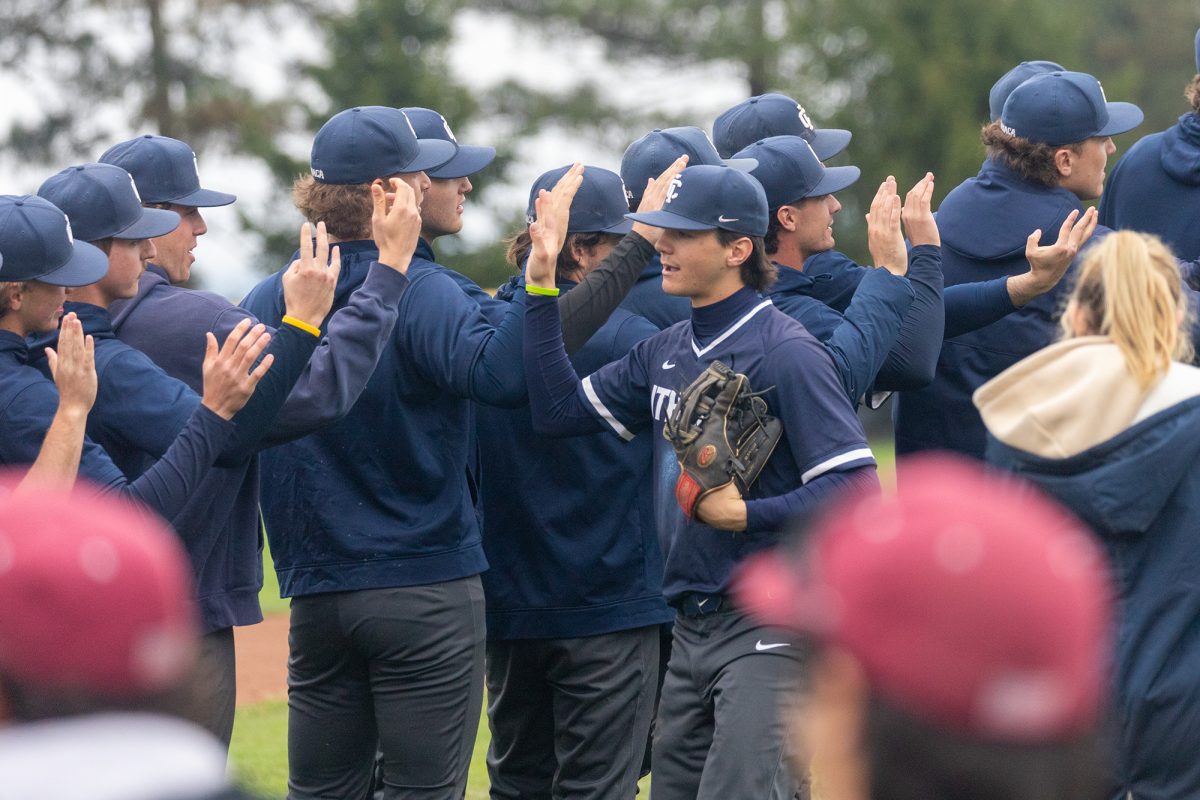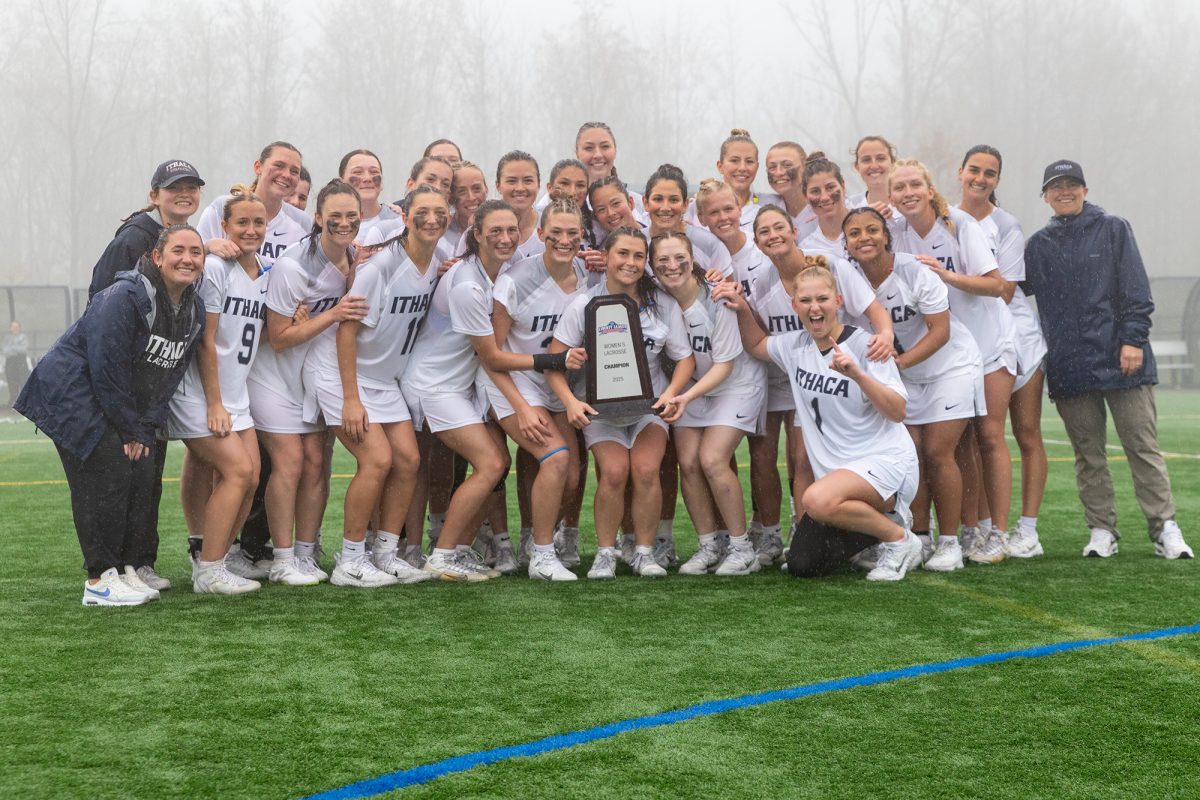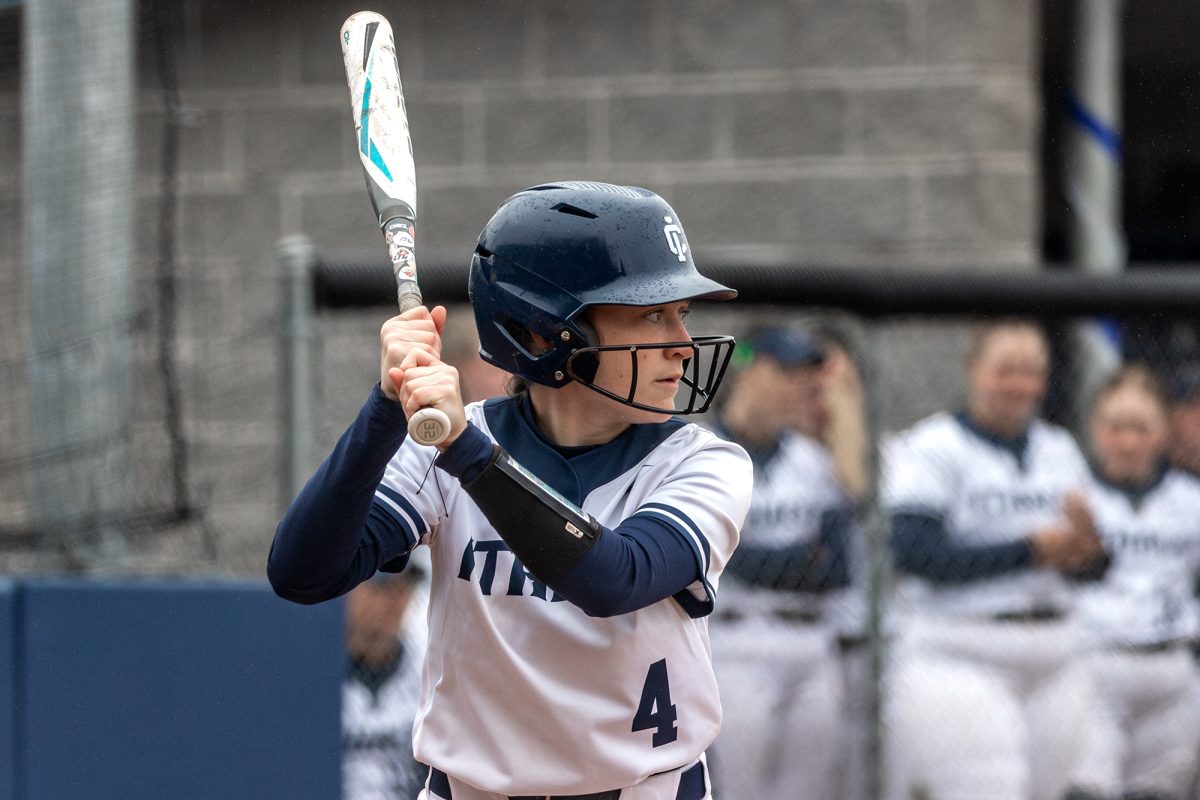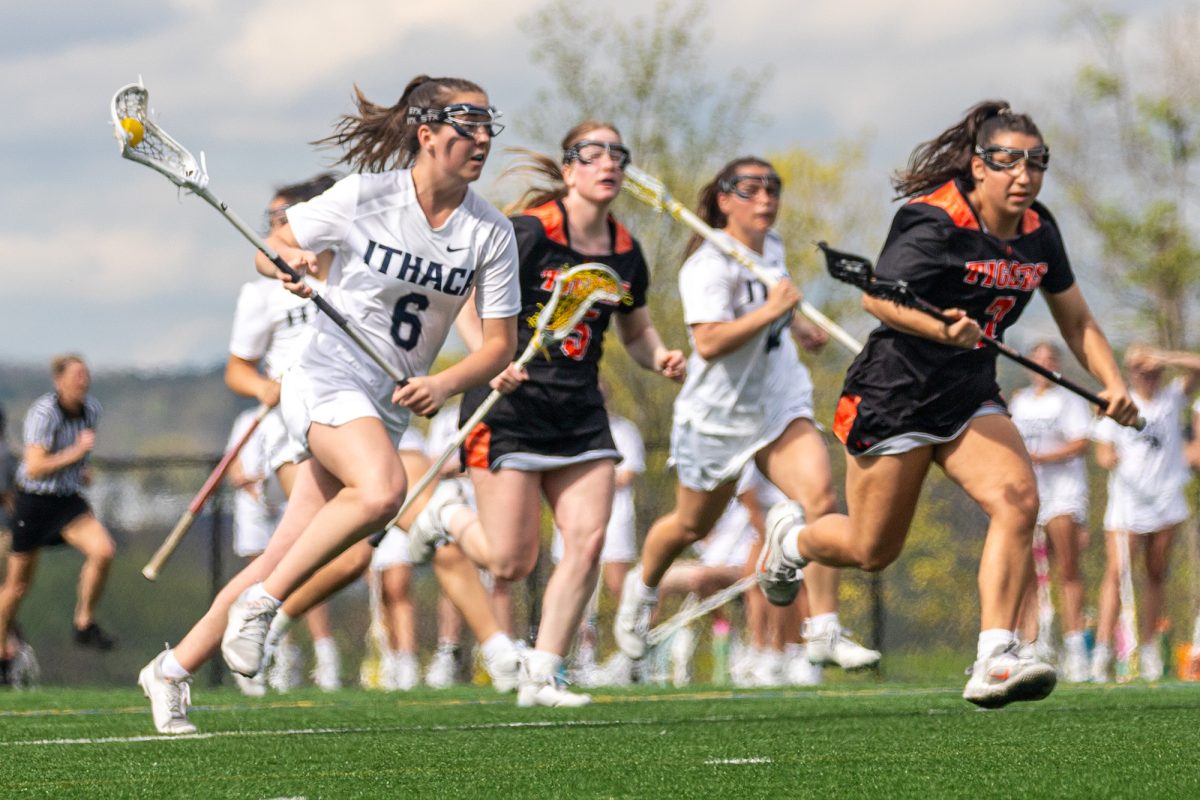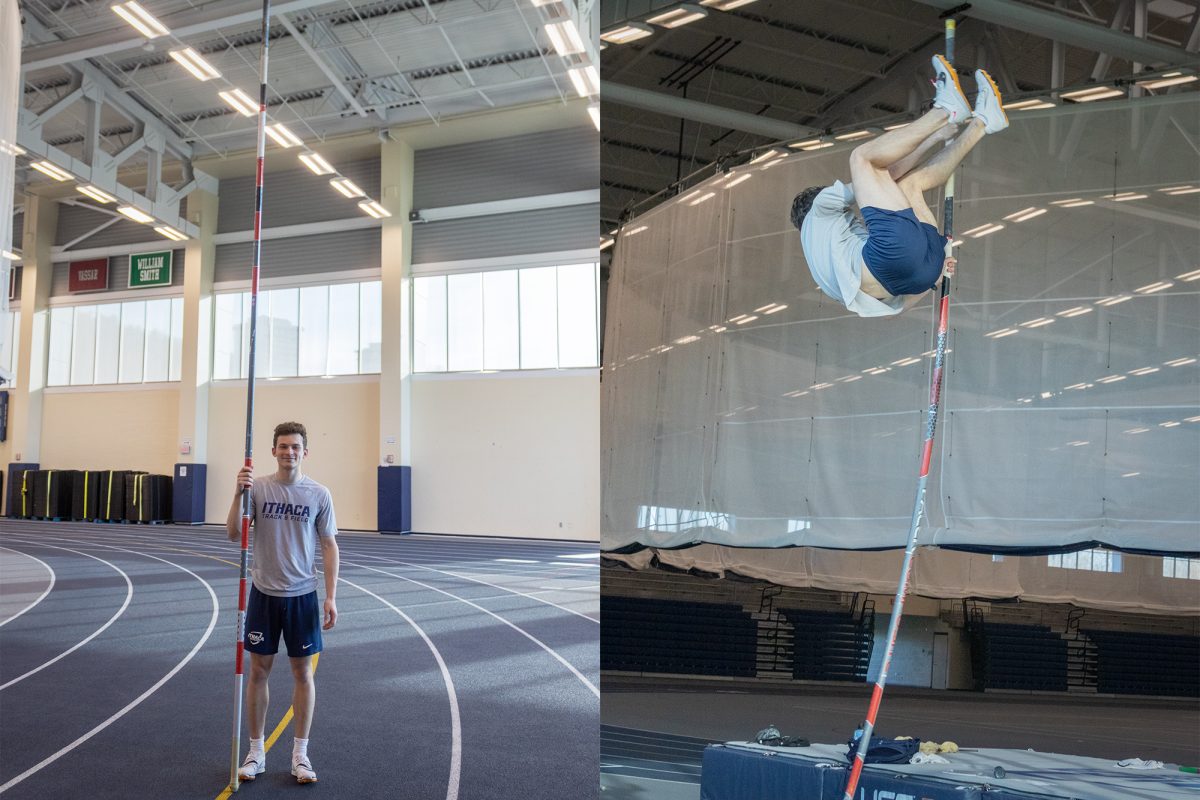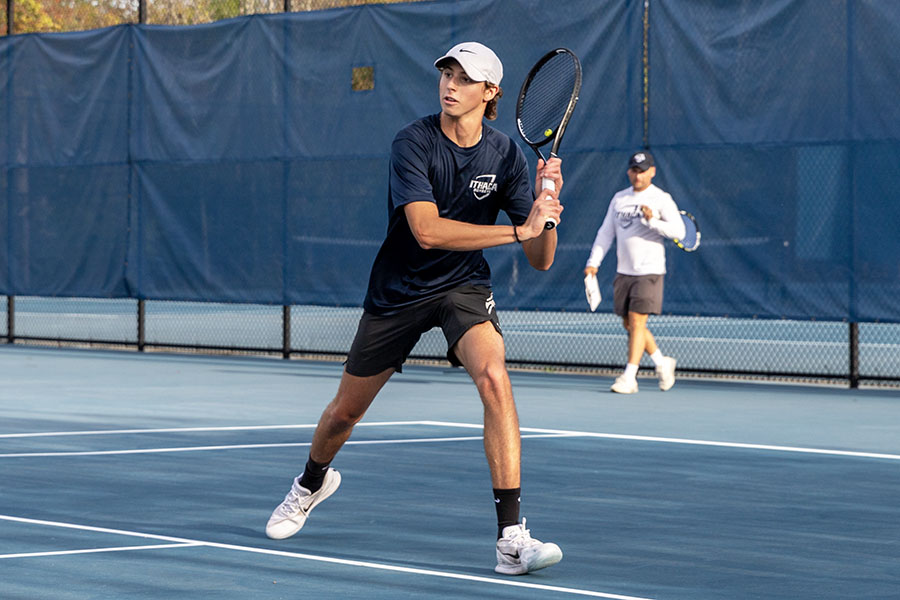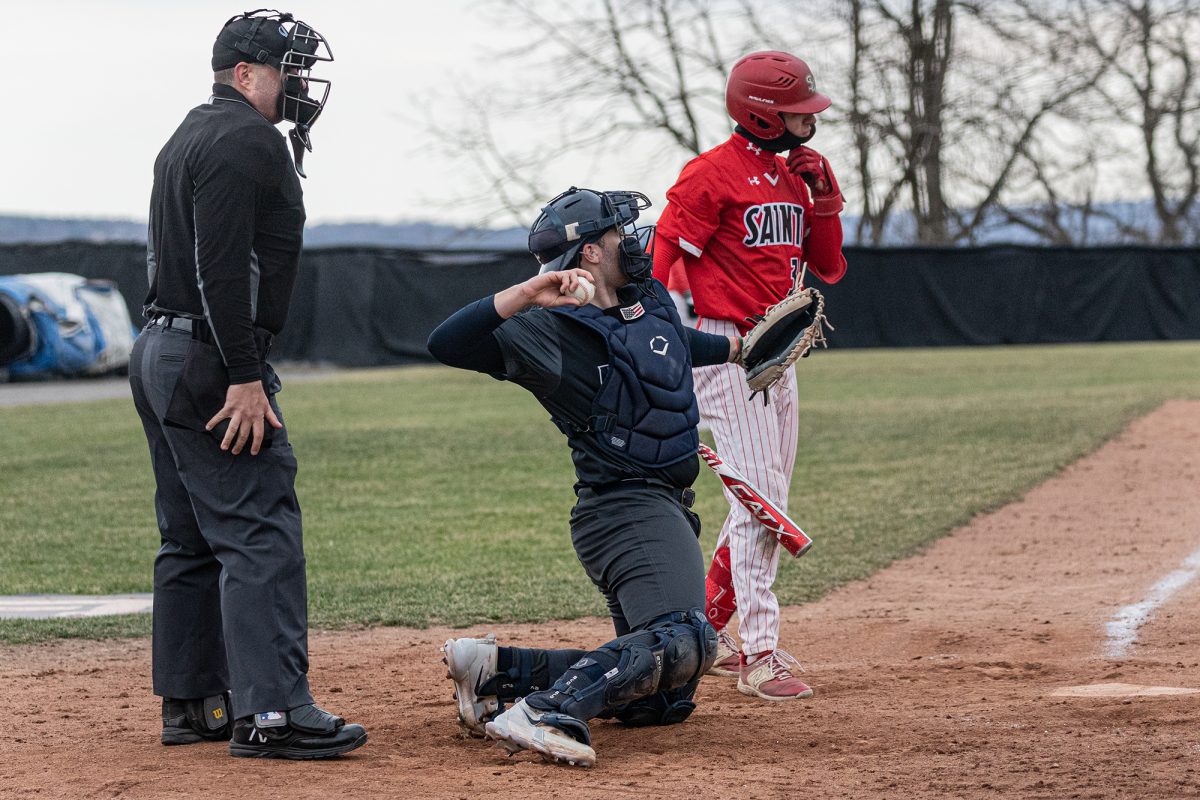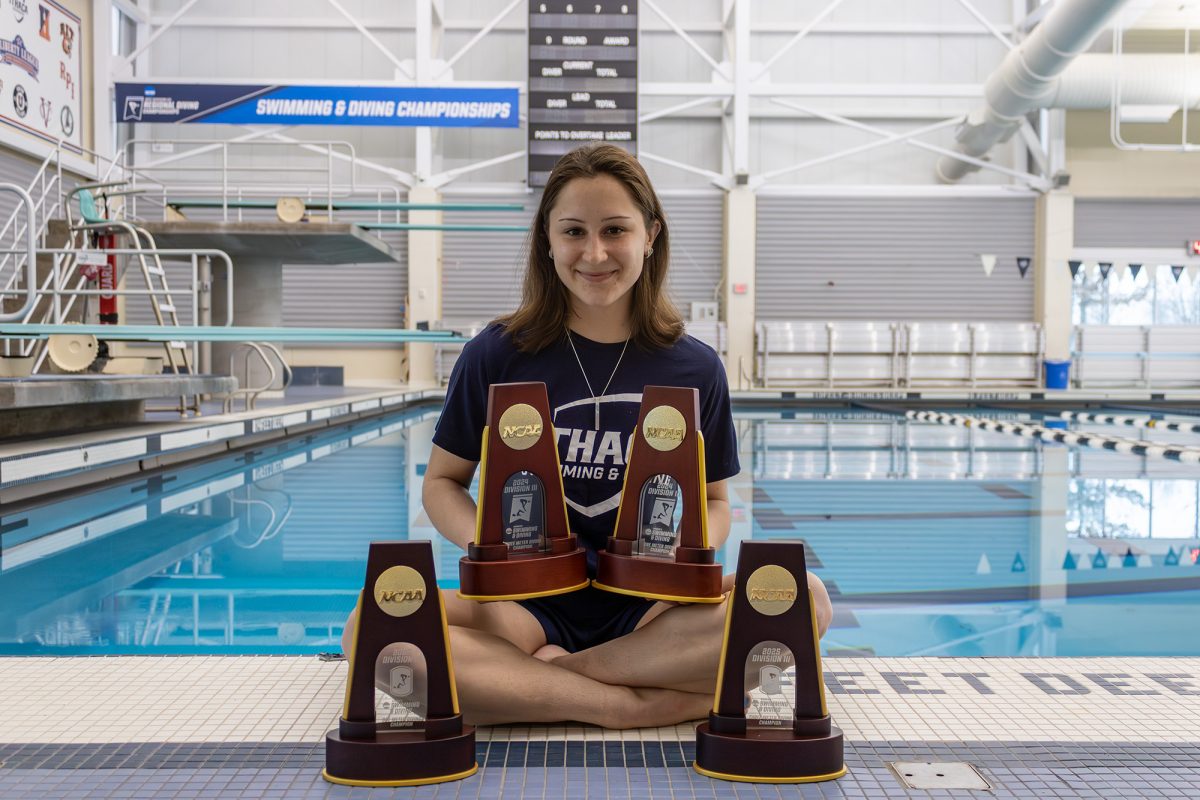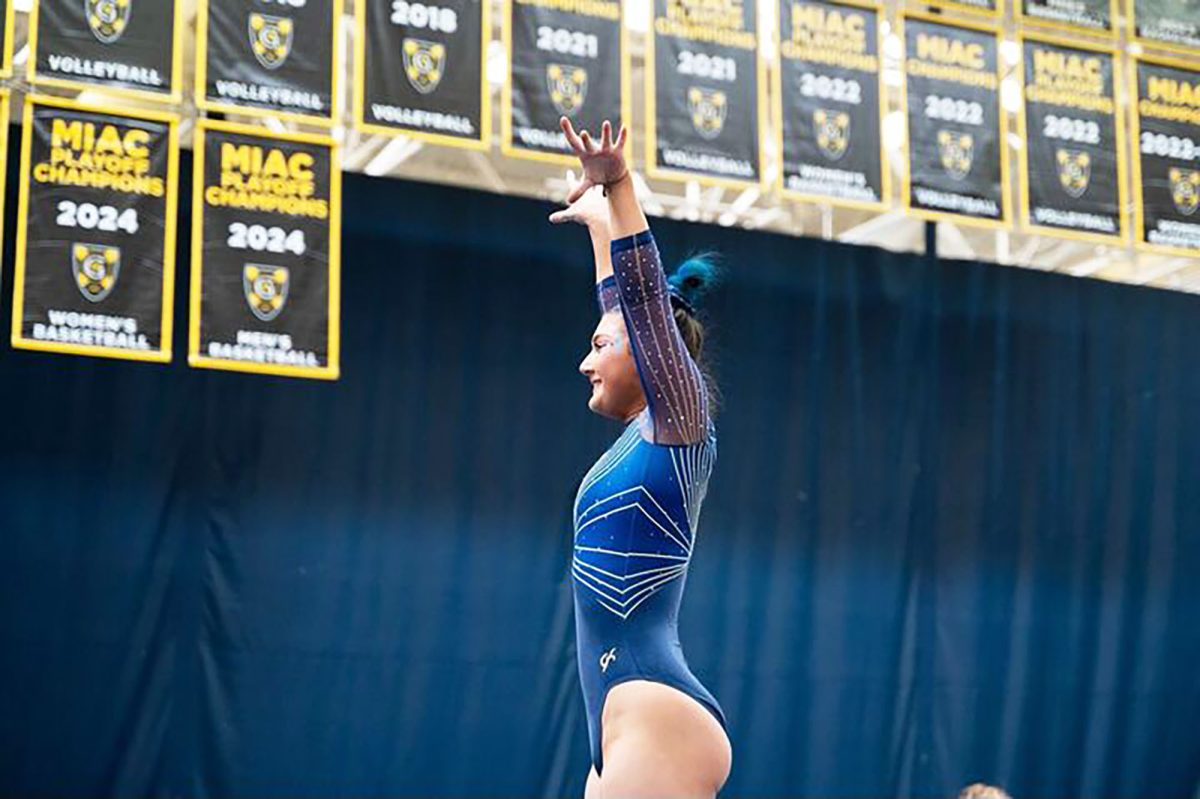With upstate New York weather being as unpredictable as it is, the Ithaca College baseball team has had to make numerous adjustments this season to accommodate a weather-intolerant field. Freeman Field is a natural dirt and grass field, not a synthetic surface, which means it cannot be plowed or played on while wet.
Logistics
Susan Bassett ’79, director of Intercollegiate Athletics and Campus Recreation and associate vice president of student affairs, said the field has to naturally drain after heavy rain or snow. The college’s softball field, Kostrinsky Field, drains better than the baseball diamond because it is higher on the hill. Softball players can usually get back on the field sooner than baseball players after heavy precipitation, depending on the amount of rain.
“The coaches, including the opposing coaches and our coaches, would communicate quite a bit and start thinking about possibilities where they can move things,” Bassett said.
Bassett said the priority is to fit Liberty League games in, so if a non-conference game is scheduled when the team could play a conference game, the non-conference game will get deprioritized and move.
Head baseball coach David Valesente said that when rescheduling a game, he needs to coordinate with multiple parties to make sure both teams have access to a facility, transportation and athletic trainers.
“It’s a constant shuffle of speculation,” Valesente said. “Having obviously plan A, plan B, plan C … there’s a lot of moving parts.”
Bassett said the protocol for deciding to move a game includes looking at weather forecasts a week in advance. Valesente said the condition of the field plays a significant role in the decision.
“If our outfield is wet and they’re calling for rain in the next three days and there’s no time for it to dry out, there’s a pretty good chance we won’t be able to play at home,” Valesente said. “It’s just communicating with the opposing coach: ‘We have this backup plan.’ … So it’s just an open line of communication and working together with the other coach to figure out the best plan that works for everybody.”
Solutions
Bassett said the college has two main solutions when Freeman Field is unplayable: Booth Baseball Field at Cornell University and Gutchess Lumber Sports Complex in Cortland. As of April 18, the college has played two games at Booth Field, three at Gutchess and two at Maine Endwell High School, compared to three true home games on Freeman Field. In 2022 and 2023 combined, the college had played nine home games on Freeman Field and five would-be home games at alternate facilities within a similar time frame.
Valesente said the college will also look for availability at turf facilities in Auburn, New York and at Onondaga Community College.
“We need to be comfortable playing anywhere,” Valesente said. “As in years past we’ve gravitated towards the road warrior mentality where we don’t mind hopping on a bus and going [to] play somewhere.”
If the college has a home series against a team with a turf field and Ithaca’s weather looks rocky, the series could get moved to the opposing team’s turf, as the college did with its April 6–7 series against the Rochester Institute of Technology. Bassett said both Booth Field and Gutchess were booked for the dates, so RIT was the best alternative.
“We don’t love that because we’re giving up a home game [that] we want to play on our own field,” Bassett said. “It’s home-field advantage.”
Although one solution could be implementing a turf baseball field at the college, Bassett said it would take a donor with a specific interest in building a turf field to make the replacement financially plausible. She said a fully synthetic baseball field with lights would cost about $4 million, but there are more affordable options, like a synthetic infield with a natural outfield.
Valesente said that while a turf field would help with upstate New York’s volatile climate, there are other aspects of the current facility that he wants to see improved. He said that the team received new dugout benches from Cornell and that Ithaca College students built new bat racks in the wood shop on campus.
Valesente said the team is interested in organizing new batting cages and a new bullpen area for pitchers. He said he also wants to put stadium seating behind home plate and new fences and branding to sharpen up the stadium.
“We do like the natural surface and really appreciate its history,” Valesente said. “If turf is in the future for us, when it comes to a donation, that’s certainly something that we would consider.”
Impact on Student-Athletes
Senior pitcher John Griffin said he expects weather changes as part of playing an outdoor sport during Ithaca’s spring. He said that accommodating for games during the week is manageable as long as players plan ahead in their coursework.
“It’s always more beneficial when everything works out and [there is] more playing on the weekends,” Griffin said. “But as a student-athlete, things change, and you have to be ready for that change. You have to be able to manage your time in a productive way to get everything that you need done.”
Valesente said the coaching staff works with players to make sure they know about schedule changes early enough to communicate class conflicts with professors.
“Communication is key as they’re building relationships in the classroom,” Valesente said. “They have the ability to communicate with them. Know about schedule changes and any kind of class or work makeups that need to take place and Ithaca is a very supportive institution when it comes to student-athletes and competition.”
Griffin said his professors have been accommodating when he needs to miss class for a game. He said one of the harder aspects of dealing with weather disruptions is the day-to-day changes, not just game day changes.
“Some kind of stuff is always getting shifted around, whether we have practice at five o’clock at night or sometimes we’ve been [practicing] at six in the morning,” Griffin said. “There’s always changes that happen on pretty much a daily basis.”
Valesente said the team has grown used to playing away from home and being flexible when the weather gets in the way of the original schedule.
“It’s part of the game,” Valesente said. “We constantly are reminding [players] that it’s out of our control. They know that we’re doing everything that we can in our power as coaches to get the games in. … The guys are really responsible about it and we make it happen.”


